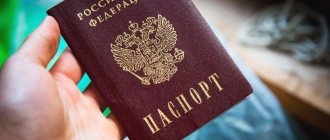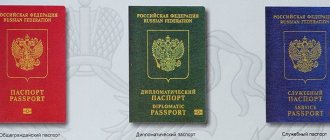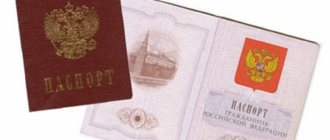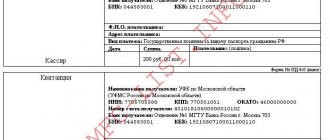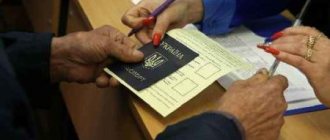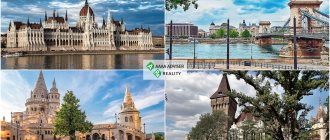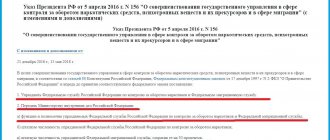All my life in Crimea
Seventeen-year-old Carlos is a talented football player.
As a member of the youth team of Evpatoria in 2021, he became the champion of Crimea. Before football, he was engaged in freestyle wrestling, won the republican tournament among youths. “I was invited to football clubs in Volgograd and Moscow,” says the athlete. “But I couldn’t accept any of the invitations due to the lack of Russian citizenship.
Last year, the young man graduated from Yevpatoria secondary school No. 2. Until 2014, the athlete’s mother Lilit Kirakosyan tried to obtain Ukrainian citizenship, but to no avail.
If Lilith had been a Ukrainian citizen with Crimean registration at the time of the reunification of Crimea with Russia, she would have received a Russian passport, followed by her son, who turned 14, two years later. But in the historic March of 2014, she remained a citizen of Armenia.
Carlos considers Crimea his homeland and wants to be a citizen of the Russian Federation.
“I’ve traveled twice in my entire life: before 2014, to Ukraine, and after that to Volgograd,” he admitted.
Grounds for granting Russian citizenship in Crimea
Recognition of Russian Federation citizenship among citizens of Ukraine and stateless persons permanently residing in the territory of the Republic of Crimea is valid from the date of admission of the Republic of Crimea to the Russian Federation. Both citizens of Ukraine and stateless persons residing on the territory of the Republic of Crimea are recognized as citizens of the Russian Federation, with the exception of the situation in which persons who, within 1 month from this date, have declared a desire to retain the existing citizenship of them and their minor children or to remain stateless .
Identification documents of a citizen of the Russian Federation were issued within 3 months from the date of admission of the Republic of Crimea to the Russian Federation (from March 16, 2014).
A person recognized as a citizen of the Russian Federation and who has received an identification document of a citizen of the Russian Federation cannot have dual citizenship with Ukraine, since Russia and Ukraine do not have an international treaty on the recognition of such dual citizenship. Therefore, a former citizen of Ukraine who has become a citizen of the Russian Federation must submit an application to renounce Ukrainian citizenship.
Found an Armenian passport
Evpatoria social activist Lyusya Arsianova appealed to the Commissioner for Children's Rights in Crimea, Irina Klyueva. In a petition addressed to the migration department of the Ministry of Internal Affairs of the republic, the children's ombudsman asked to assist the child's legal representative in issuing a passport of a citizen of the Russian Federation. “According to the verification... Akopyan K. A. is a citizen of Armenia, which is confirmed by the fact that he has a national passport,” Elena Stavropulo, acting head of the department for migration issues of the Ministry of Internal Affairs of the Republic of Kazakhstan, said in response in November 2018.
Carlos and Lilith have lived in Yevpatoria since the early 2000s. Photo: Alexey Vakulenko/RG
“I was shocked because I had never been to Armenia and, of course, I didn’t receive a passport,” Carlos admits. Lilith contacted the Armenian Ministry of Internal Affairs with a request for a certificate that would confirm that her child does not have an Armenian passport. There, she says, they said that such information is provided only at the request of the Russian Ministry of Internal Affairs.
In June last year, the same Stavropulo (now as the deputy head of the same department), in response to another appeal, explained that only a holder of established Russian citizenship can obtain a Russian passport.
Carlos considers himself a stateless person: at the time of the reunification of Crimea with Russia, according to the young man, he was permanently residing in Yevpatoria and, as a stateless person, could receive a passport as a citizen of the Russian Federation in 2016, celebrating his 14th birthday.
“I want to do military service in the Russian army, because it is my civic duty to my homeland,” Carlos admits. — Then graduate from university. But without a passport all this is impossible.
Crimea began issuing electronic passports to replace paper ones
Integration
IT in the public sector Market
28 April 2015 11:04 28 Apr 2015 11:04 |
Share The Crimean Federal Migration Service demonstrated to Prime Minister Dmitry Medvedev the process of issuing electronic identity cards for Russian citizens using domestic equipment.
The Crimean Department of the Federal Migration Service (FMS) has begun a pilot project to issue electronic identity cards replacing traditional paper passports. This was reported by RIA Novosti, which covered the trip to Crimea of Russian Prime Minister Dmitry Medvedev
.
The Russian electronic passport in its new version is a plastic card on which the owner’s last name, first name and patronymic, his photo, gender, date and place of birth, document number, date of issue and expiration date, as well as TIN and SNILS are printed.
The level of protection of electronic documents exceeds the level of protection of existing internal passports of a citizen of the Russian Federation. The passport is produced using domestic equipment in two and a half hours, according to the FMS. The demonstration registration of marriage and sale of a car using an electronic passport during the presentation to Medvedev took several minutes.
It is interesting that among the data marked on the map there is no information about the place of registration of the citizen. It is contained only in the barcode, writes RIA Novosti.
According to the head of the FMS Konstantin Romodanovsky
, the registration address of the owner of the electronic passport can be checked through the central address bureau of the FMS, which contains information on more than 47 million citizens. You can use a reader to read the barcode.
Answering Dmitry Medvedev’s question about the readiness of pilot regions to issue electronic passports, head of the Ministry of Telecom and Mass Communications Nikolai Nikiforov
stated that “technically, in fact, we are completely ready, we are waiting for legal registration.”
Dmitry Medvedev and Nikolai Nikiforov in the Crimean Federal Migration Service
According to Dmitry Medvedev, the issuance of electronic cards should occur at the request of the citizen: “You can receive it, or you may not receive it. There is a question of habit, and perhaps mature people will not find this very convenient. But then everyone will get used to it and move on.”
According to Izvestia, the electronic passport has a “payment component.” According to the presentation of the Ministry of Telecom and Mass Communications, the payment application of the National Payment System will be recorded on the document chip.
Why after the end of the pandemic clouds will be in demand even more than before it
Clouds
Pilot projects for issuing plastic ID cards instead of paper passports were supposed to start on January 1, 2015. In addition to residents of Crimea and Sevastopol, it was planned to begin issuing documents of a new type in the Krasnodar Territory and the Rostov Region. It is expected that widespread issuance of electronic IDs will begin in 2021.
According to the decree of the President of the Russian Federation “On the issuance and use of identity cards for citizens of the Russian Federation of the new generation”, in 2015 it is planned to issue a limited number of platinum identity cards - no more than 300 thousand pieces.
About i200 million will be spent on this from the federal budget, and, as stated in the reference to the draft presidential decree, these funds will be fully compensated in 2015 from the fee for issuing an identity card. Thus, the fee for issuing plastic documents (i666.67) now exceeds the fee for issuing a paper passport form (i300)
According to CNews, about i150 million will be spent on electronic ID forms (production, including the purchase of chips, personalization and delivery), and another i50 million will be spent on information security and peripheral equipment (fingerprint scanners, card readers and writers) .
It was planned to purchase the chip for identification cards from Zelenograd, which already supplies microcircuits for 10-year international passports.
The IT infrastructure for issuing new electronic IDs should be a system created by combining GISMU (responsible for issuing domestic Russian passports) and GS PVDNP (biometric international passports). The systems are being modernized and integrated by Technoserv (FMS contractor) and Voskhod Research Institute (Ministry of Telecom and Mass Communications contractor).
- IT marketplace Market.CNews: choose the best tariff out of thousands for IaaS cloud infrastructure among dozens of providers
Share
Short link
Crimeans with a Ukrainian passport may not notify about dual citizenship, - FMS
On October 22, the Federal Migration Service of the Republic of Kazakhstan published an explanation. It follows from it that on the day Crimeans were recognized as citizens of the Russian Federation, according to the norms of the Federal Constitutional Law of March 21, 2014 No. 6-FKZ (March 18, 2014), “they did not acquire Ukrainian citizenship, but they were.” Accordingly, “from January 1, 2021, those residents of Crimea who have or will again acquire citizenship of another foreign state must submit a notification of the presence of another citizenship,” the migration service clarifies. The rule on mandatory notification to the Federal Migration Service about the presence of dual citizenship does not apply to residents of Crimea who received Russian citizenship “on top of” Ukrainian.
Crimeans recognized as citizens of the Russian Federation under an agreement between Russia and the Republic of Crimea do not need to notify the FMS authorities about their Ukrainian citizenship. This was reported by the press service of the Crimean Migration Department, Crimea Media reports.
According to the Crimean department of the Federal Migration Service, according to the norms of Russian legislation, residents of Crimea from January 1, 2021 must submit a notification about the presence of another citizenship if they acquire it. In particular, the department refers to the Federal Law of June 4, 2014 No. 142-FZ “On Amendments to Articles 6 and 30 of the Federal Law “On Citizenship of the Russian Federation”, as well as part three of Article 6 of the Federal Law of May 31, 2002 No. 62-FZ “On citizenship of the Russian Federation”.
At the same time, on the day the residents of Crimea were recognized as citizens of the Russian Federation in accordance with the norms of the Federal Constitutional Law of March 21, 2014 No. 6-FKZ (March 18, 2014), they did not acquire Ukrainian citizenship, but they were, the FMS explains.
Thus, from January 1, 2021, only Crimeans who have or will reacquire citizenship of another state must submit a notification of having another citizenship: Armenia, the USA, Germany, and so on.
If a resident of Crimea acquired Russian citizenship in accordance with the above-mentioned Federal Constitutional Law 6-FKZ, being a stateless person, and subsequently acquires Ukrainian citizenship, he is also obliged to notify the Federal Migration Service of Russia about this within 60 days.
“The position of the Federal Migration Service of Russia is that residents of the Republic of Crimea and Sevastopol, who at the time of recognition as citizens of the Russian Federation in accordance with Article 5 of the Treaty between the Russian Federation and the Republic of Crimea had citizenship of Ukraine, from January 1, 2021, submit notifications to the Federal Migration Service authorities about the presence of no other citizenship (Ukrainian citizenship) is necessary,” concluded the head of the Federal Migration Service of Russia for the Republic of Kazakhstan, Petr Yarosh.
Let us recall that the obligation to notify the Federal Migration Service of Russia about dual citizenship was introduced by the Federal Law “On Amendments to Articles 6 and 30 of the Federal Law “On Citizenship of the Russian Federation” and certain legislative acts of the Russian Federation.” It came into force on August 4, 2014. There is criminal liability for concealing dual citizenship.
Krymmedia
Share link:
Similar
Features of obtaining Russian citizenship for Ukrainian citizens in Crimea
The main condition for admission to Russian citizenship is the applicant’s residence on the territory of the Russian Federation. Therefore, persons who can submit an application to the consulate are those who: have at least one parent who has Russian citizenship and resides on the territory of the Russian Federation, had USSR citizenship and remain stateless. Citizens of Ukraine (including the LPR) living on the territory of the Russian Federation must apply to the Ministry of Internal Affairs of the Russian Federation to obtain citizenship.
To obtain Russian citizenship, citizens living on the territory of Ukraine or the LPR must renounce Ukrainian citizenship, since the International Treaty does not provide for dual citizenship of these countries. The renunciation of citizenship can be issued at the Ukrainian Consulate in Russia. There is no Russian consulate in the LPR, therefore, due to the fact that the LPR is an unrecognized state, you can apply for Russian citizenship on the basis of a passport of a citizen of Ukraine; if there are political problems between Ukraine and the LPR, it is better to apply for citizenship in Crimea.
Citizenship can be obtained both in general and in a simplified manner. The following may apply for citizenship in a simplified manner: those who are married to a citizen of the Russian Federation, those born in the RSFSR or the Russian Federation, those who have a disabled parent (citizen of the Russian Federation), those who have children who are citizens of the Russian Federation, those recognized as refugees, and persons participating in the “Resettlement of Compatriots” Program.
From whom and why are Russian passports taken away in Crimea?
If it weren’t for Bobylev, Veronika Yudaeva would not have soon learned that she is not currently Russian. But Russian citizen Vasily Bobylev, entering into marriage with Russian citizen Yudaeva, wished that his wife would change her last name - and therefore her passport - within the one-month period provided by law.
“I went as expected - a week or two after the wedding,” says Veronika Yudaeva. — Five times to the FMS (department of the Federal Migration Service of Russia for the Republic of Crimea in Alushta. — Approx . “Lenta.ru”
) I walked around, stood in line - in general, I got in. I handed in all the documents, paid the state fee - here is the signature, I was told to choose a new one, to Bobylev. There were no complaints about my documents, they told me to come back in fourteen days.”
To be sure and taking into account the queues, Veronica arrived a little later. The new passport, however, was not even in the FMS database: “Go to the third office,” they told me. I went, and the girl who accepted my documents was sitting there. “I will remember you until you have a passport,” she tells me. “You had temporary registration at the time of Crimea’s entry into the Russian Federation. Therefore, the Russian passport issued to you is invalid.” They gave me all the documents and said that my citizenship needed to be confirmed.”
Among the returned papers is a birth certificate: 1991, Bakhchisarai, Crimea. A Ukrainian passport is one of the necessary proofs of residence; registration in Bakhchisarai is the first stamp. Two registration marks in Alushta - for the period of study in Yalta: 2010 and January 2014, two months before the transition of Crimea to Russian jurisdiction. Confirmation cards from the Ukrainian passport office. Russian Federation passport, issued in May last year, Alushta registration. Military ID, Russian: the paramedic education of Veronica, a nurse at two Crimean FAPs, is obligatory. INN, SNILS, a copy of a medical college diploma - already of the Russian standard.
Photo: Maxim Vetrov / AP
To confirm Veronica’s citizenship, according to the Alushta FMS, she should, in addition to these documents, collect certificates. For example, from college (a diploma is not enough), from a local clinic (that she was observed from such and such to such and such is also confirmation) and from the housing office. Then pay the state fee of 3,500 rubles and wait. An important detail is that the FMS authorities have not recorded any documented claims against Yudaeva’s legal status; she was not given an act of confiscation of her passport or any other document confirming Veronica’s current position. The old main document returned to her, now useless: the stamp about marriage and change of surname has been there for two months, it’s overdue, therefore, a month. Veronica has not yet collected any information: confident in her own rightness, she filed complaints with the Federal Migration Service and the Crimean prosecutor's office. The month for a response has not yet expired.
Apparently, Veronika Anatolyevna was among the 22 students from whom, according to the Crimean Federal Migration Service, Russian passports issued in 2014 were confiscated after an inspection. How many of the students at Crimean universities—holders of temporary registration at the time of last year’s Crimean referendum—turned out to be permanent residents of the peninsula is not indicated in the statistics. In addition to Veronica’s incident and two cases described by colleagues, Lenta.ru is aware of similar problems of Anna N., a student at Tauride University. A native of Kherson, Anna has lived in the Belogorsk region of Crimea since 2000. She went to study in Simferopol, where she registered with relatives in 2012. After the reunification of Crimea with Russia, Anna got married and came to change her passport to a new surname; further - see above.
There is also no data for other categories of the population, but some cases are known. For example, Oleg K. lived in Simferopol at the same address since the mid-1980s. He was deprived of his main Russian document when he came to exchange the passport he had already received for another one due to his age. The lack of a properly executed house register, which did not prevent anything in 2014, has now played a decisive role. Oleg's problem has already been resolved - through the courts.
What does the law say? Lawyers and victims refer to Article 5 of the Treaty between the Russian Federation and the Republic of Crimea. Migration officials - to Article 4 of the federal law “On the admission of the Republic of Crimea to the Russian Federation.” According to the agreement, citizenship is granted to all residents of Crimea who have lived there for more than six months at the time of reunification, while the permanence or temporary nature of Ukrainian registration on the territory of the peninsula is not taken into account. According to the law, we are talking about permanent residence in Crimea - an indispensable condition for obtaining a Russian passport.
One way or another, but, in theory, neither Veronika Yudaeva with Bakhchisarai in the registration history, nor Anna N., nor Oleg K., nor other Crimean residents who once moved from point A to point B on the territory of one peninsula, all this is in no way should have affected. “If you follow the logic of events, then all Crimean students registered in dormitories at the time of the referendum will sooner or later go after my niece,” believes Anna Ometsinskaya, Veronica’s aunt and the owner of the Alushta apartment where she is registered. - Like those who moved to work from our villages in Simferopol, Yalta and registered as expected. It is impossible for Crimeans who honestly followed the law to suffer.”
A woman writes down the names of citizens applying for Russian passports at the passport office in Sevastopol
Photo: Vasily Fedosenko / Reuters
It is difficult to say whether there is any connection between the current actions of the FMS and the street advertisements with which Simferopol was filled for several months last year: “Russian citizenship”, the price of the issue is from five to seven thousand dollars. However, the authorities have an understanding that the current difficulties of two dozen passportized Crimeans should remain isolated. Thus, the head of Crimea Sergei Aksenov personally promised to look into the causes of the incidents.
How to get out of the situation, respecting not only the letter of the law, but also common sense? The fact is that, as Vladimir Konstantinov, head of the State Council of the Republic of Crimea, admitted to Lenta.ru, “there are certain problems in terms of working with passports and citizenship.” The head of the Parliament of the Republic of Kazakhstan sees the source of the problems in the influx of refugees onto the peninsula - primarily from neighboring Ukraine: “Many of those who thought about it before, waited to see what would happen, rushed to get Russian citizenship. Now time has passed, they have become convinced of the consistency of all our actions and their location in life.”
Cases, of course, vary. “There are families - the husband is registered here, the wife is in Kherson. Such mixed marriages are the biggest problem,” Vladimir Konstantinov gives an example. “The situation is no less difficult with children who completed their studies in Kyiv and want to return to Crimea to reunite with their parents living here.” And it also happens like this: “Someone is fighting in Kyiv, blaspheming Russia and the Russian language, and sends his entire family here to live in our calm, safe Russian Crimea. Let the family be here, and he will bark at Crimea, bark at Russia... We, in the end, are not obliged to give citizenship to everyone,” the head of the State Council emphasizes. — Russian citizenship is not a gateway. We, Crimeans, made a lot of effort to become Russians and obtain a Russian passport. We've come a very long way. But there is no need for excessive bureaucracy.”
Either the excessiveness, or, on the contrary, the inadequacy of the procedure, is evidenced by the story of Svyatoslav Didukh, born in Alushta in 1997. Svyatoslav, who lives with his parents in Simferopol, did not manage to receive a Ukrainian passport linking him to his place of permanent registration. There is a complication: the mother and father are registered in different apartments. As a result, the young man was issued a Russian passport only four months after submitting the documents - in February of this year. Moreover, without registration at the place of residence. The stamp was placed only in September. Svyatoslav’s mother Yulia recalls how the passport officer, not seeing the registration, exclaimed: “The passport is invalid!” And he assumes that with their own re-registration (Svyatoslav’s parents decided, in order to avoid further questions, to register together), problems with confirming citizenship may also arise.
The fears are most likely unfounded, including due to the publication of the current passportization incidents. Although, according to Vladimir Konstantinov, among the reasons for this one cannot fail to note the difficulties of the migration service itself in Crimea: “The staffing table of the FMS was formed in one environment, while our regional offices are located in completely different conditions. The influx is huge, people come for certificates, confirmations, consultations, queues are formed. Gaps and distortions arise. There is probably negligence and bureaucracy.” Nevertheless, the head of the State Council emphasizes, “despite the atypical nature of the cases, it is not easier for a particular person. He becomes extremely dissatisfied with the authorities, is this good? We must respond to all manifestations of the carelessness and bureaucracy of individual officials.”
“Today there is no reason to talk about the mass seizure of Russian passports in Crimea,” says Leonid Slutsky, chairman of the Russian State Duma Committee on CIS Affairs and Relations with Compatriots, who is closely monitoring the situation. “These are still isolated, albeit very unpleasant incidents.” In the first months after the reunification of Crimea with Russia, recalls deputy Slutsky, a Russian passport was given to everyone who wanted it, “but the necessary package of legislation for accession, including the procedure for obtaining citizenship, had not yet been fully developed and approved.”
People stand in line to apply for Russian passports. Simferopol
Photo: Maxim Shemetov / Reuters
The case of Veronika Yudaeva is currently under special control by employees of Vladimir Konstantinov’s office. Most likely, a native Crimean woman will not have to collect additional certificates, spend time and money to confirm her citizenship as Veronica Bobyleva. As for the protection of other law-abiding Crimean citizens, Leonid Slutsky does not see the point in introducing “some additional legal mechanisms specifically for residents of Crimea”: in his opinion, now that the problem is clear, the existing ones are sufficient. “Only a year and a half has passed since the reunification of the peninsula with Russia, and transitional provisions are still in effect,” recalls the head of the Duma committee. “However, the legislative framework has been formed, Crimea is gradually integrating more and more tightly into the legal field of Russia. I am confident that all these situations will be resolved safely in the near future.”
